-
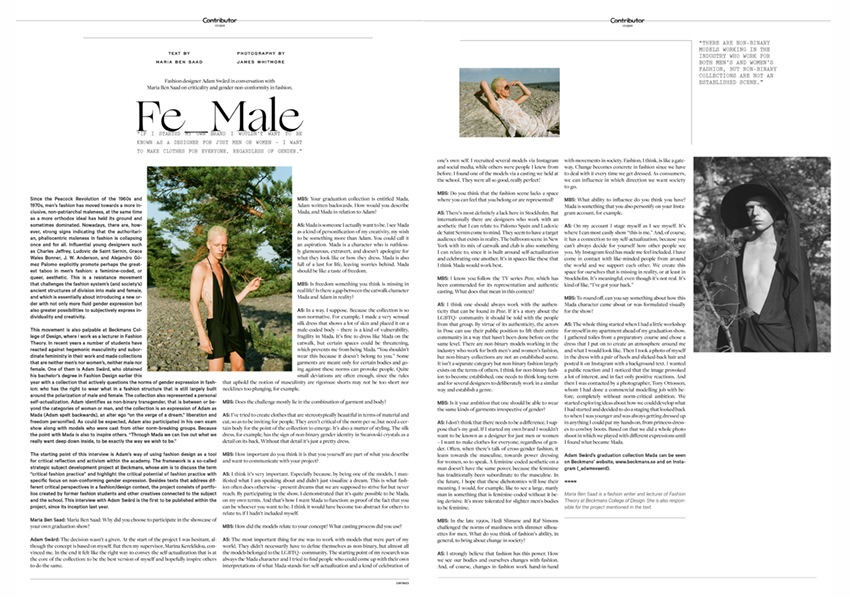
Fe_Male. Interview with Fashion Designer Adam Swärd
Fashion designer Adam Swärd in conversation with Maria Ben Saad on criticality and gender non-conformity in fashion.
-
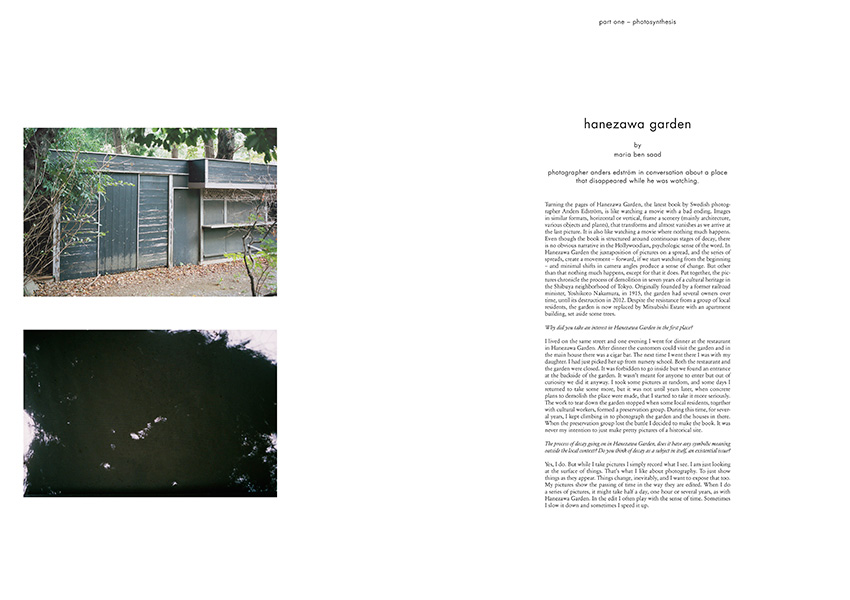
Hanezawa garden. Interview with Photographer Anders Edström
Photographer Anders Edström in conversation about a place that disappeared while he was watching. By Maria Ben Saad.
-
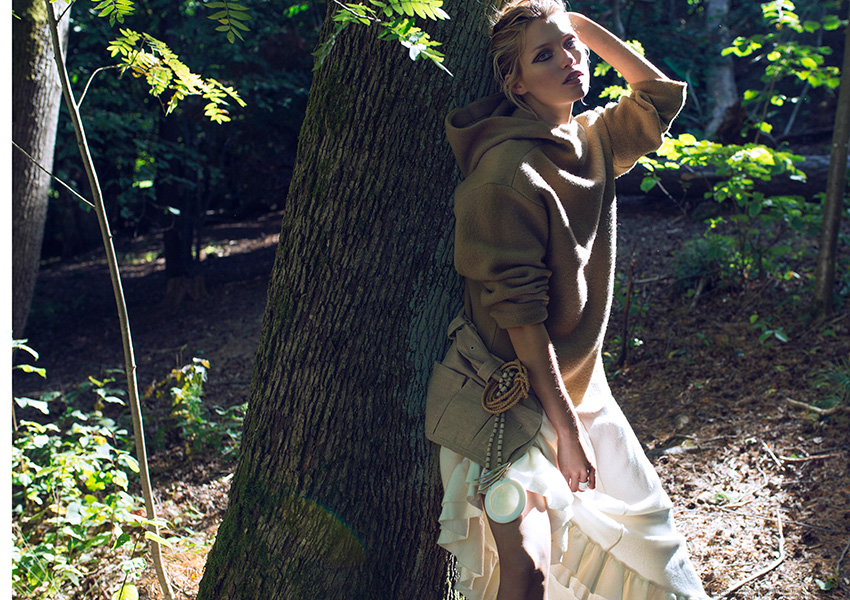
Nature as Culture. Essay by Maria Ben Saad
While researching this text I returned to Barbara Kruger’s iconic picture from 1983 with a black and white image of a woman’s face partly covered with the words: “We won’t play nature to your culture.” True to a feminist agenda, the picture rejects artificially determined gender roles, building on the dichotomy of “culture” (superior and male) versus “nature” (inferior and female). Kruger challenges not only the dichotomy itself – the binary opposition of nature and culture – but also the legacy of a power structure, where culture is considered to be of higher rank than nature, as well as the tradition of associating culture with male and nature with female. By Maria Ben Saad
-
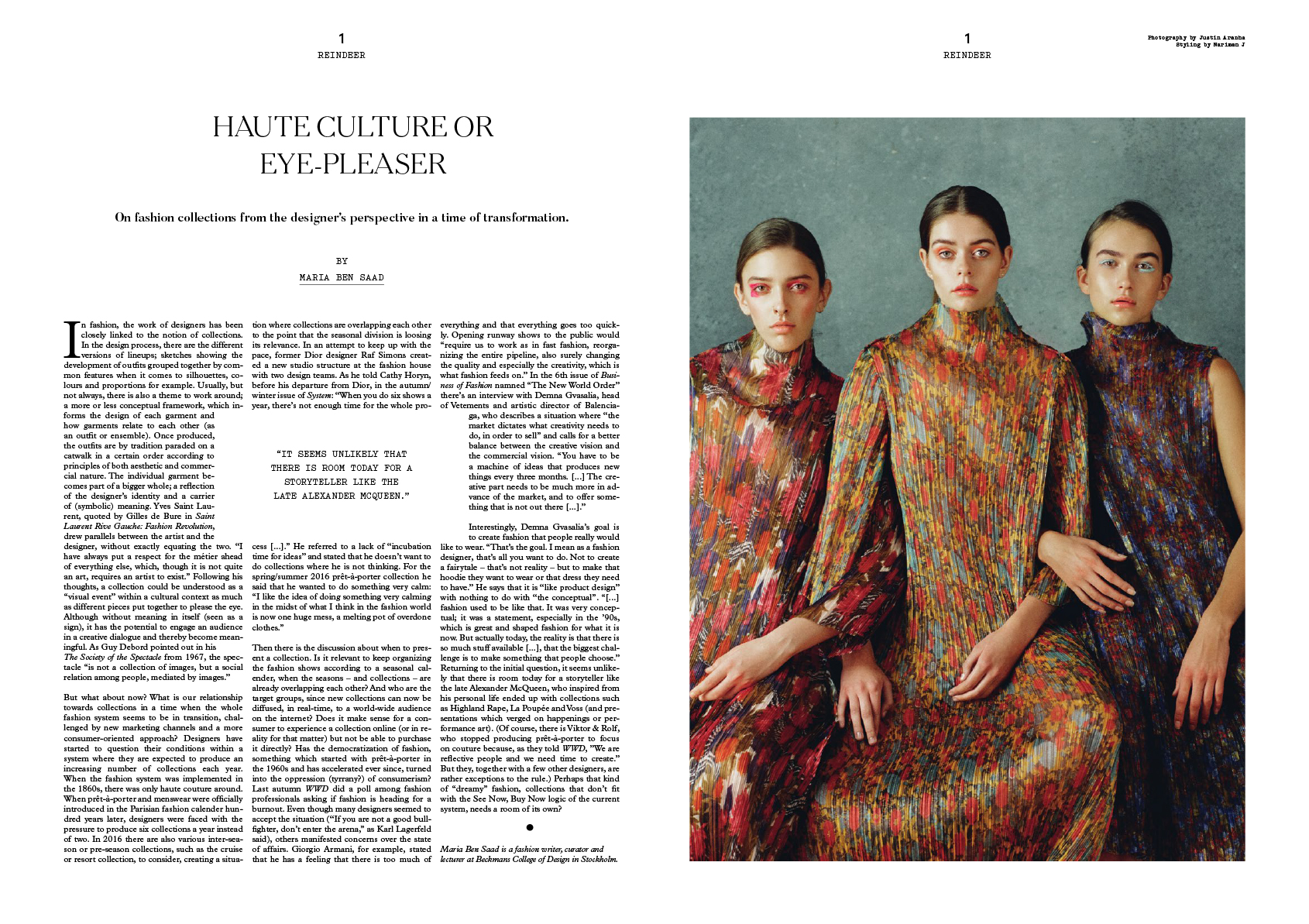
Haute Culture or Eye-Pleaser. Essay by Maria Ben Saad
On fashion collections from the designer’s perspective in a time of transformation. What is our relationship towards collections in a time when the whole fashion system seems to be in transition, challenged by new marketing channels and a more consumer-oriented approach? Designers have started to question their conditions within a system where they are expected to produce an increasing number of collections each year. By Maria Ben Saad. Photography by Justin Aranha and and styling by Nariman J.
-
Signs Of Time. Essay on making Peace with Death in Fashion
Throughout history, fashion has been criticized for being superficial and out of touch with reality. As sociologist Yuniya Kawamura writes in her book Fashion-ology from 2005, fashion has been attacked by both scholars and feminists and didn’t become a legitimate research topic until recently (basically in the eighties, when fashion studies was established as an academic field). She quotes Sandra Niessen and Anne Brydon, who describe different historical attitudes towards fashion: “Social analyses uniformly condemned fashion. Feminists critiqued the sexual politics and gender oppression inhering in clothing which hobble and confine women. Marxists critiqued the fetishism of fashion and the ideology of conspicuous consumption. Psychologists treated fashion adherence as pathology.” By Maria Ben Saad
-
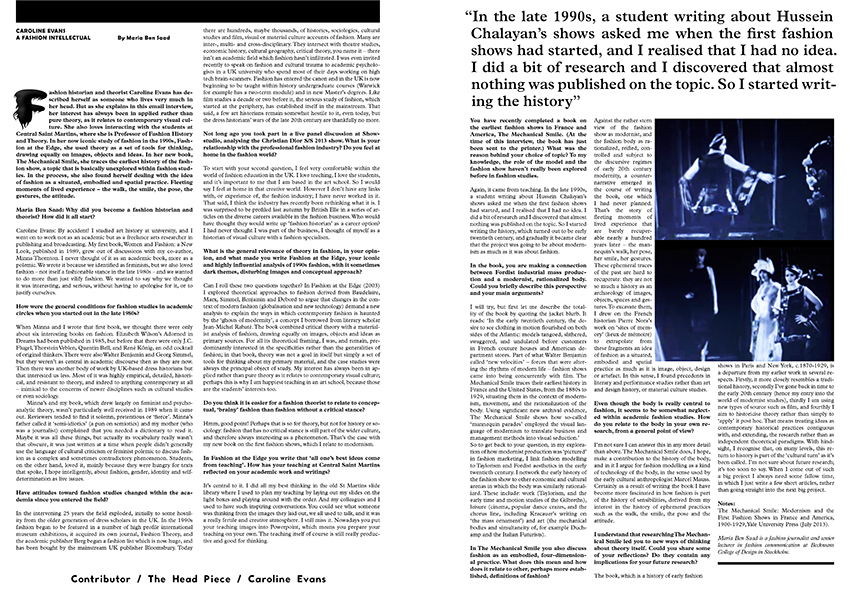
A Fashion Intellectual. Interview with Caroline Evans
Fashion historian and theorist Caroline Evans has described herself as someone who lives very much in her head. But as she explains in this email interview, her interest has always been in applied rather than pure theory, as it relates to contemporary visual culture. She also loves interacting with the students at Central Saint Martins, where she is Professor of Fashion History and Theory. In her now iconic study of fashion in the 1990s, ‘Fashion at the Edge’, she used theory as a set of tools for thinking, drawing equally on images, objects, and ideas. In her new book, ‘The Mechanical Smile’, she traces the earliest history of the fashion show, a topic that is basically unexplored within fashion studies. In the process, she also found herself dealing with the idea of fashion as a situated, embodied and spatial practice. Fleeting moments of lived experience – the walk, the smile, the pose, the gestures, the attitude. Interview by Maria Ben Saad
-
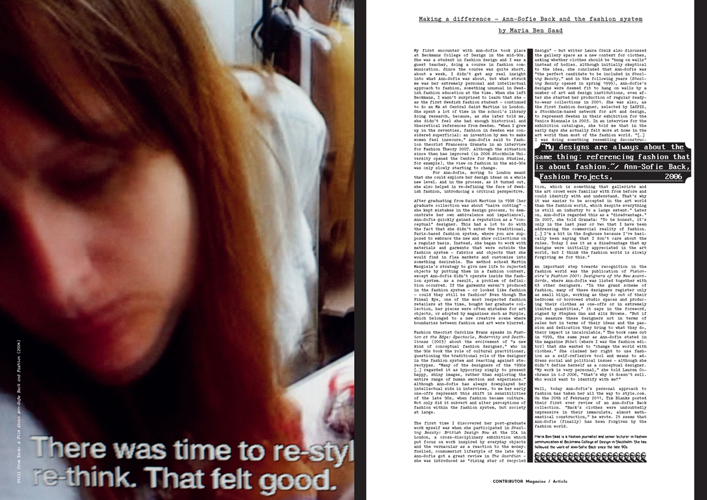
Making a Difference. Ann-Sofie Back and the Fashion System
My first encounter with Ann-Sofie took place at Beckmans College of Design in the mid-nineties. She was a student in fashion design and I was a guest teacher, doing a course in fashion communication. Since the course was quite short, about a week, I didn’t get any real insight into what Ann-Sofie was about, but what struck me was her extremely personal and intellectual approach to fashion, something unusual in Swedish fashion education at the time. By Maria Ben Saad
-
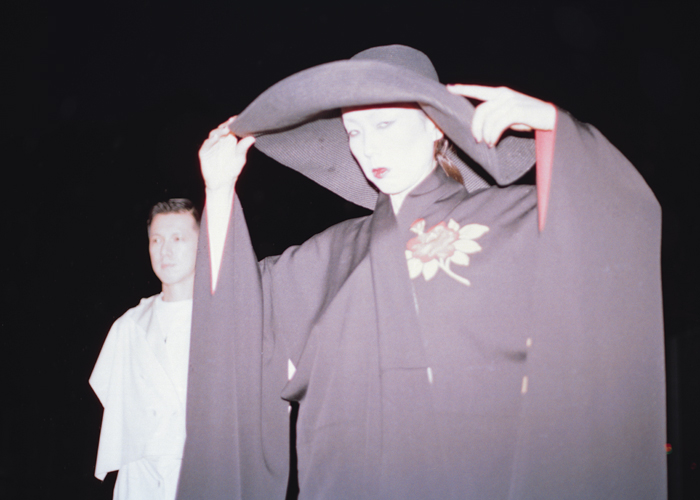
Fashion after Fashion. Essay by Maria Ben Saad
Recently, I was flipping through the pages of A.L.T.: A Memoir, the autobiography by André Leon Talley, one of my favorite larger-than-life figures in the fashion world. In one passage, he describes how he was “a true convert of fashion” by the age of twelve, reading everything he could get his hands on, especially Vogue under the reign of fashion editor Diana Vreeland. “While other boys may have been out practicing their fastballs or trying to break track records, I was on the couch, enrapt in the pages of the world Diana Vreeland had invented, a world of fantasy, style, and exquisite fashion.” By Maria Ben Saad.
